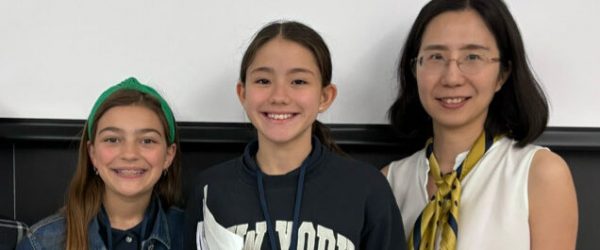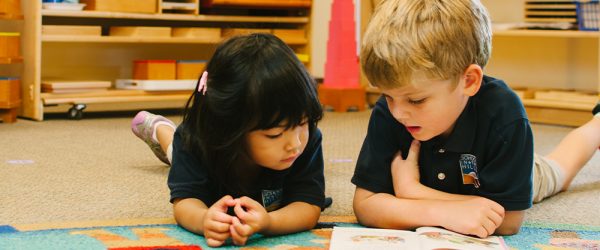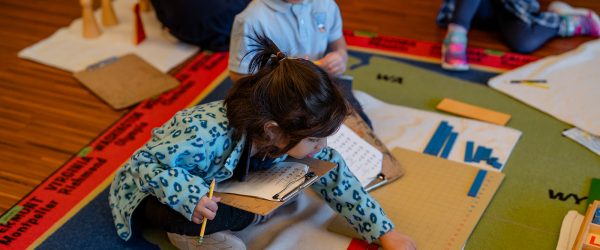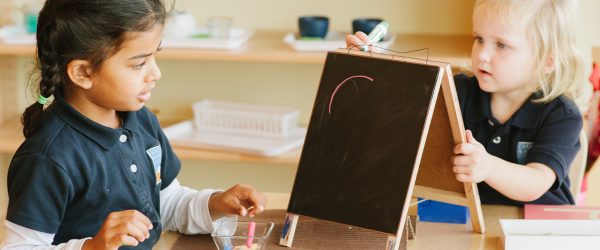Cosmic curriculum is a term used in Montessori education to describe a comprehensive and integrated approach to learning, and is taught as part of School in the Hills spiral curriculum. It encompasses a wide range of subjects and topics, aiming to provide children with a holistic understanding of the world and their place within it.
The cosmic curriculum in Montessori is designed to go beyond traditional subject-based learning and instead focuses on interconnectedness and the unity of knowledge. It recognizes that all areas of study are interconnected and seeks to help children make meaningful connections between different subjects.
The curriculum typically includes science, history, geography, language, mathematics, and cultural studies. It incorporates hands-on materials, real-life experiences, and natural world exploration to engage our students in learning.
The cosmic curriculum also emphasizes developing essential skills such as critical thinking, problem-solving, collaboration, and creativity. It encourages children to ask questions, explore their interests, and create a sense of wonder and curiosity about the world.
Some examples of Cosmic curriculum within our classrooms include:
1. The Solar System: Children learn about the planets, their characteristics, and their positions within the solar system. Our students explore the concepts of day and night, seasons, and the Earth’s rotation and revolution.
2. Earth Science: Within our classrooms, our students study the Earth’s geology, including the formation of mountains, volcanoes, and bodies of water. They also learn about weather patterns, natural disasters, and the importance of conservation.
3. History of Life: They also explore the history of life on Earth, from the earliest forms of life to the development of human civilizations. They learn about prehistoric animals, ancient civilizations, and significant historical events.
4. Cultural Studies: With a culturally well-rounded curriculum, our students are introduced to different cultures and traditions from around the world. They learn about diverse customs, languages, music, art, and celebrations, fostering an appreciation for cultural diversity.
5. Ecology and Environmental Studies: They learn about ecosystems, food chains, and the interdependence of living organisms. As they move forward in their educational journey, they explore topics such as biodiversity, sustainability, and the impact of human activities on the environment.
6. Astronomy and Space Exploration: School in the Hills students delve into the wonders of the universe, studying stars, galaxies, and space exploration. They learn about famous astronomers, space missions, and the possibilities of future space exploration.
The cosmic curriculum in Montessori education is essential because it provides children with a well-rounded education beyond academic knowledge. It helps students develop a deep understanding of the world, a global perspective that inspires a love for learning, and a deep understanding of the interconnectedness of all things.




